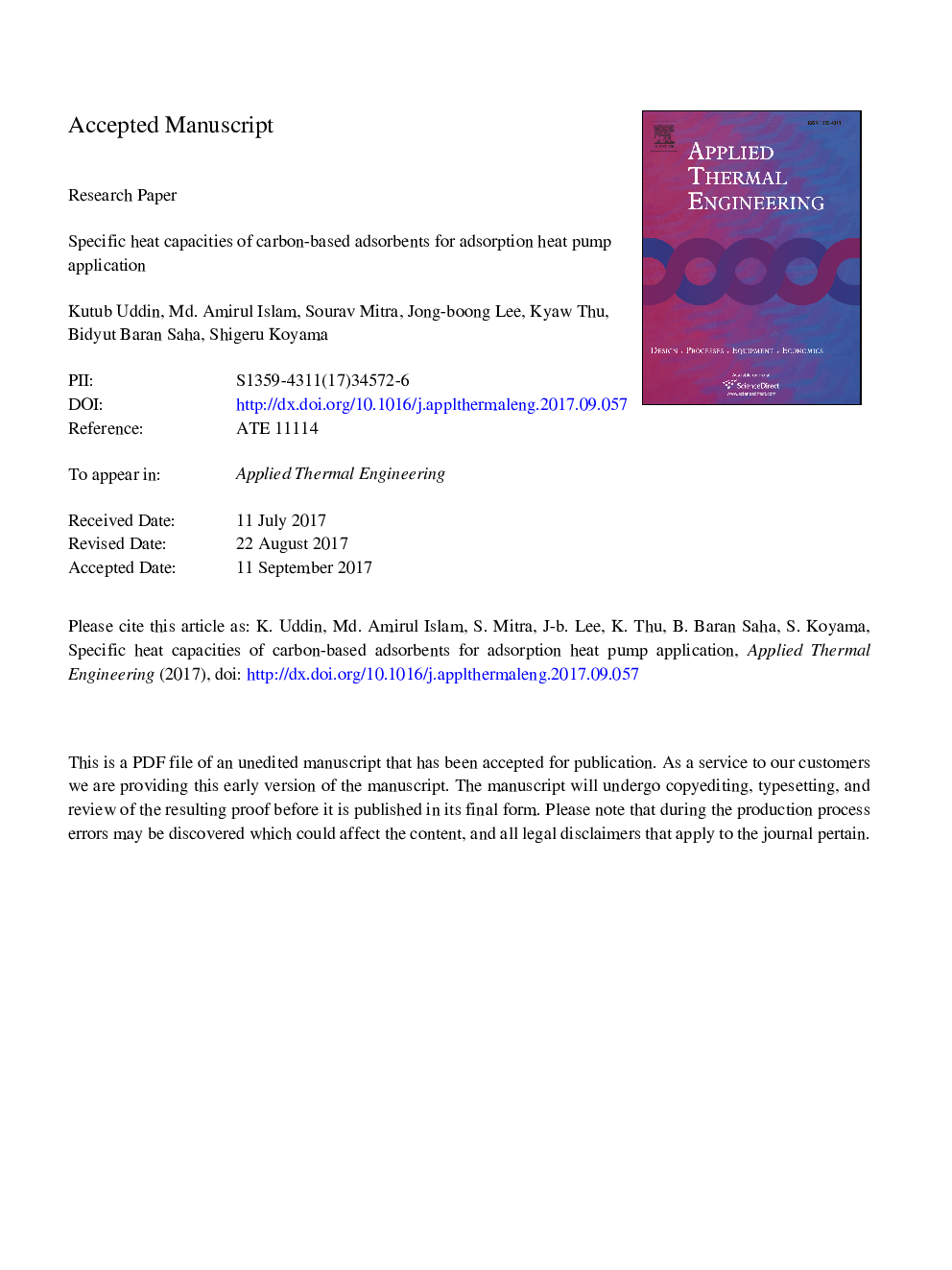| Article ID | Journal | Published Year | Pages | File Type |
|---|---|---|---|---|
| 4990322 | Applied Thermal Engineering | 2018 | 35 Pages |
Abstract
Microporous adsorbents have been extensively employed in various sorption cycles. The specific heat capacity of such porous materials is an important parameter in adsorption simulation and system design. This article discusses the experimental evaluation of the specific heat capacities of several carbon-based adsorbents for cooling applications. The studied adsorbents include (i) parent Maxsorb III with different particle sizes, (ii) surface treated Maxsorb III (H2 and KOH-H2) (iii) recently developed spherical activated carbon (KOH treated phenol resin, KOH6-PR) and (iv) expanded graphite. The specific heat capacity of these materials is measured at temperatures ranging from 30 °C to 150 °C using a heat flux type differential scanning calorimeter (DSC). Within the experimental conditions, no phase transition or thermal anomaly is detected for all the adsorbents. Surface treated adsorbent exhibits higher specific heat capacities whilst KOH treated phenol resin (KOH6-PR) has the lowest value among the studied adsorbents. High specific heat capacities in the surface treated Maxsorb III might be attributed to the effect of surface treatment and the presence of surface functional group. The model given by Perry and Green is employed to fit the experimental data. These experimental data together with the fitted parameters are essential in the design and simulation of adsorption heat pump systems.
Related Topics
Physical Sciences and Engineering
Chemical Engineering
Fluid Flow and Transfer Processes
Authors
Kutub Uddin, Md. Amirul Islam, Sourav Mitra, Jong-boong Lee, Kyaw Thu, Bidyut Baran Saha, Shigeru Koyama,
